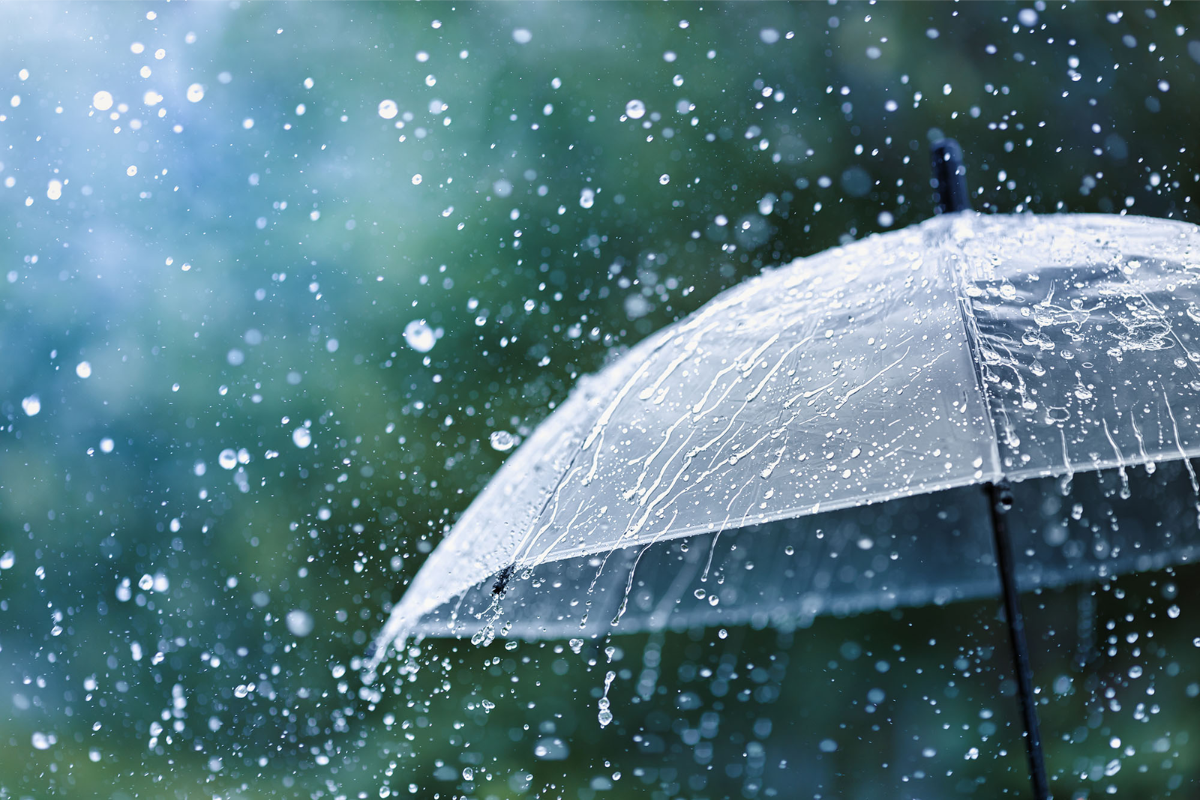Categories
Boosting Children's Immunity: Tips for a Healthy Monsoon Season
Oct 30, 2024
Preventing monsoon illnesses in children is very important as it could affect children mentally and physically. The monsoon is a wonderful season with pleasant weather and rain but it also poses serious challenges to the parents as kids are susceptible to various infections, colds, flu, etc. this season. Kids love playing in the rain, jumping in the puddles, floating paper boats, etc. Water-logged areas are the breeding ground for mosquitoes and other germs. The risk of gastrointestinal tract diseases andrespiratory illness is high due to food and water contamination. The hospitals are on full alert during the monsoon with many children visiting the doctors with serious infections. Let us get to know in detail about some healthy food and lifestyle tips that can prevent sickness in children during the monsoon.
Children get sick frequently due to rains, changes in weather, and a weakened immune system during monsoon. It is a pain for parents to go for repeated blood tests, hospital admissions, medications, etc. The other major issue is that children become highly irritable due to high fever and stop eating because of loss of appetite. Sometimes, diagnosing the condition also gets delayed adding more confusion and fear to the already worried parents. The kids are fussy when it comes to syrups or tablets. Therefore, avoiding infections is the key. Boosting children’s immunity should be the major agenda for parents during monsoon. A healthy lifestyle, regular exercise, and healthy eating habits can bring positive changes in children’s health and protect them from major diseases.
Parents have to behighly cautious and try to protect their kids from major infectious diseases or else children would face hospital admissions and miss many school days. Monsoon preparedness is not only essential for parents but also for schools, day-care, playschools, etc. As we all know, “Prevention is better than cure”, it is important to take the necessary measures to protect the little ones from hospitalization, injections, repeated blood tests, pain, and agony. Though it can be so tempting for the children to eat samosas, pakoras, and pani pooris from roadside vendors, it is important to teach them about the negative consequences and encourage them to have clean and well-cooked homemade foods that can keep them healthy and happy during the monsoon. Monsoon brings alot of challenges to parents when it comes to children’s health. However, parents need to be prepared to prevent monsoon-related sickness in children and make it a healthy season. Children should be made aware of the risk of infections during the rainy season and be advised to take necessary precautions both in school and at home to remain safe and healthy. They should be encouraged to play indoor games during heavy rains. Everyone needs to enjoy the monsoon instead of worrying about sickness, hospital visits, and admissions. Parents should not panic but take the necessary precautions and visit a pediatric healthcare specialist if their child gets sick during the rainy season. Follow these children’s health tips and have a healthy monsoon season. Happy Parenting to all lovely parents!
Major illnesses that affect children during monsoon:
- Dengue/Malaria: Monsoon is the perfect time for the breeding of mosquitoes. If your child suffers from chills, high fever, body pain, nausea, etc. it is important to consult a doctor.
- Chikungunya: Mosquitoes living in tires, drainage pipes and water tanks can cause Chikungunya. If a child has symptoms like high fever, pain, orfatigue, medical intervention is essential.
- Typhoid: This infection is especially high during monsoon due to food or water contamination. If the child suffers from diarrhea, rashes, orheadache take him or her to the doctor.
- Gastrointestinal Infections: When children eat raw food or food that is not fully cooked, they might get constipation, indigestion, andstomach pain due to contaminated food.
Children’s Health Tips:
Take a look at the tips that can help you boost your child’s immunity and enable them to have a healthy monsoon season. By all means, we need to keep infections at bay. Make your child aware of the following health tips that can protect them from monsoon-related sickness.- Prevent mosquito bites: Ask your child to use an insect repellent and wear long sleeves and pants while playing outside to prevent mosquito bites
- Body hygiene after play: After playing outdoor games, the children need to take a shower and keep their body dry and warm to avoid cold or fever
- Hydration: Children need to stay hydrated; Ensure they drink enough fluids. You can also provide soups or oral rehydration solution
- Good hand hygiene: This is highly essential; Teach the kids to wash their hands with soap and water before eating to ward off any bacteria/virus
- Drinking clean water: Ensure children drink boiled water that is free from germs; Advise children to avoid drinking water or juice from outside
- Avoid eating street foods: Children should avoid eating outside foods to prevent stomach infections
- Prefer warm and dry clothes: Damp clothing can result in fungal infections; Encourage children to change their wet clothes immediately
- Vaccination: Ensure your children get vaccinated before the monsoon sets in; though the entire spectrum of infection cannot be prevented by vaccination, vaccines protect children from flu, hepatitis, etc.
- Prevent mosquito breeding: Avoid water stagnation in houseplants, drums, andtires as it can increase the number of disease-causing mosquitoes
- Teach the children nail hygiene: Children should trim their nails and keep them neat and clean to avoid infections
- Avoid junk foods: Children should consume ahealthy diet consisting of whole grains, proteins, fruits, and vegetables that can boost their immune system. It is better to avoid processed foods and snacks
- Physical activity: Encourage children to exercise regularly
- Adequate Sleep: Sleep plays a crucial role in repairing the body and also strengthens the immune system. Children should have adequate sleep
- Immediate medical advice: If your child suffers from symptoms like high fever, rashes, diarrhea, orvomiting, don’t opt for ahome remedy. Seek adoctor’s advice immediately without waiting for the symptoms to subside.
Foods for boosting children's immunity
Citrus fruits:
Children should be encouraged to consume citrus fruits such as oranges and lemons that are rich in Vitamin C. Fruits have anti-inflammatory and antiviral properties that can boost the immune system.Leafy greens:
Children should include leafy greens as it is rich in antioxidants and helps in fighting infections.Ginger:
Add ginger to soups or foods, if your child has asore throat as it helps to fight respiratory infections.Garlic:
Garlic can reduce the frequency of colds and other infections.Turmeric:
Curcumin present in turmeric has anti-inflammatory effects. You can add turmeric to milk which can provide relief to the child from cold.Almonds:
Rich in Vitamin E, almonds provide all essential nutrients and boost your child’s immune system.Honey:
With antibacterial and antimicrobial properties, honey provides relief to children with colds and coughs.Foods to be avoided during monsoon:
Watery Foods:
Fruits like watermelon and cucumbers are to be avoided during the rainy season as these can result in waterborne diseases. Watery foods can also lead to indigestion.Spicy Foods:
The high levels of humidity during monsoon affect children’s digestive capacity and therefore it is better to avoid spicy foods. Easily digestible foods have to be consumed.Fried Foods:
Fried foods contain high-fat levels that can affect digestion.Seafoods:
As fishes are prone to contamination, especially during monsoon, seafood consumption can lead to foodborne illness. It is better to avoid seafood during the rainy season.Sprouts:
Raw sprouts are dense in nutrition but they can also be the perfect place for bacterial or fungal growth. It is better to consume cooked sprouts during monsoon.Cut Fruits:
Avoid consuming fruits that have been cut and sold by fruit vendors during monsoon as there are high chances of food contamination.Dairy Products:
Certain dairy products like cheese and paneer can spoil very soon due to high humidity in the rainy season. Consuming such products can lead to food poisoning.FAQs:
What are the major illnesses during monsoon?
Typhoid, Dengue, Respiratory issues, Flu, Cold, Viral fever, etc. are some of the illnesses that affect children during the monsoon.Why should we care about children’s health, especially during monsoon?
Monsoon results in several bacterial, viral, fungal, and parasitic infections due to moisture in the atmosphere. Hence, taking care of children’s health is highly important during the rainy season.How parents can protect children from getting infections?
Parents need to provide a healthy nutritious meal that can help in boosting children’s immunity. Children need to be taught about hand hygiene, the importance of drinking clean water, having a healthy lifestyle, etc.How can vaccines save children?
Vaccines can protect the children from monsoon-related illnesses like hepatitis, Influenza, etc.When should we consult a pediatrician?
If your child suffers from chills, loss of appetite, and ahigh fever that doesn’t subside, take your child immediately to a pediatrician. Delaying will only lead to worse consequences.Parents have to behighly cautious and try to protect their kids from major infectious diseases or else children would face hospital admissions and miss many school days. Monsoon preparedness is not only essential for parents but also for schools, day-care, playschools, etc. As we all know, “Prevention is better than cure”, it is important to take the necessary measures to protect the little ones from hospitalization, injections, repeated blood tests, pain, and agony. Though it can be so tempting for the children to eat samosas, pakoras, and pani pooris from roadside vendors, it is important to teach them about the negative consequences and encourage them to have clean and well-cooked homemade foods that can keep them healthy and happy during the monsoon. Monsoon brings alot of challenges to parents when it comes to children’s health. However, parents need to be prepared to prevent monsoon-related sickness in children and make it a healthy season. Children should be made aware of the risk of infections during the rainy season and be advised to take necessary precautions both in school and at home to remain safe and healthy. They should be encouraged to play indoor games during heavy rains. Everyone needs to enjoy the monsoon instead of worrying about sickness, hospital visits, and admissions. Parents should not panic but take the necessary precautions and visit a pediatric healthcare specialist if their child gets sick during the rainy season. Follow these children’s health tips and have a healthy monsoon season. Happy Parenting to all lovely parents!











